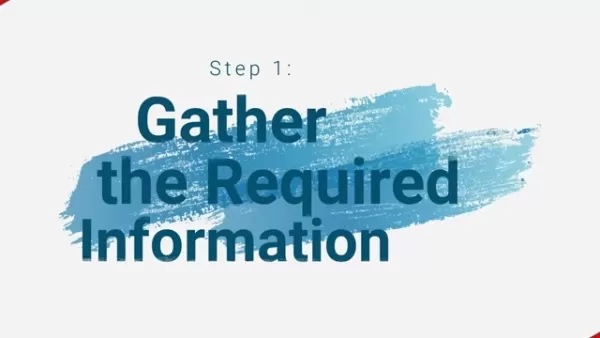AI-Powered Misinformation Identified as Top Global Risk

As we approach a period where numerous countries are gearing up for elections over the next two years, the threat of misinformation and disinformation, turbocharged by artificial intelligence (AI), looms large as the most critical global risk. This concern is underscored by the World Economic Forum's (WEF) Global Risks Report 2024, which highlights that the intertwining of falsified information with societal unrest will be at the forefront, especially with major economies holding elections.
Amidst growing anxieties about the cost of living, the risks associated with AI-fueled misinformation are set to overshadow other concerns this year. According to the WEF, misinformation and disinformation will top the list of global risks, closely followed by extreme weather events and societal polarization. The report also lists cyber insecurity and interstate armed conflict among the top five risks.
Regional Variations in Risk Perception
While misinformation and disinformation is deemed the top risk in India, it ranks sixth in the US and eighth in the European Union. The WEF points out that the rapid acceleration in the capabilities of manipulated information, driven by easy access to sophisticated technologies and a decline in trust towards information and institutions, is exacerbating the situation.
The Impact of Synthetic Content
Over the next couple of years, a variety of actors are expected to exploit the surge in synthetic content, further intensifying societal divisions, ideological violence, and political repression. With nearly three billion people set to vote in countries like India, Indonesia, the US, and the UK, the widespread dissemination of misinformation could jeopardize the legitimacy of newly elected governments.
The ease of accessing user-friendly AI tools has already led to a boom in falsified information and "synthetic" content, such as advanced voice cloning and fake websites. The WEF warns that this synthetic content will manipulate individuals, harm economies, and fracture societies in numerous ways over the next two years, potentially being used for various purposes, from climate activism to escalating conflicts.
Emerging Threats and Regulatory Responses
New types of crimes, such as non-consensual deepfake pornography and stock market manipulation, are also on the rise. The WEF cautions that these issues could lead to violent protests, hate crimes, civil conflicts, and terrorism.
In response, some countries are already implementing new regulations aimed at both the hosts and creators of online and illegal content. The nascent regulation of generative AI, such as China's requirement to watermark AI-generated content, may help in identifying false information, including unintentional misinformation from AI-generated content. However, the WEF notes that the pace of regulation is unlikely to keep up with the rapid development of technology.
Recent technological advancements have increased the volume, reach, and effectiveness of falsified information, making it harder to track, attribute, and control. Social media platforms, tasked with maintaining integrity, may be overwhelmed by multiple overlapping campaigns. Moreover, disinformation is becoming increasingly personalized and targeted, often spread through less transparent messaging platforms like WhatsApp or WeChat.
Challenges in Distinguishing AI-Generated Content
The WEF also highlights the growing difficulty in distinguishing between AI-generated and human-generated content, even for sophisticated detection systems and tech-savvy individuals. However, some countries are taking steps to address this challenge.
Singapore's Initiative to Combat Deepfakes
Singapore has announced a SG$20 million ($15.04m) investment in an online trust and safety research program, which includes establishing a center to develop tools to combat harmful online content. Led by the Ministry of Communications and Information (MCI), this initiative is set to run until 2028.
The Centre for Advanced Technologies in Online Safety, scheduled to launch in the first half of 2024, aims to bring together researchers and organizations to create a robust ecosystem for a safer internet. The center will focus on developing and customizing tools to detect harmful content, such as deepfakes and false claims, and will also work on identifying societal vulnerabilities and developing interventions to reduce susceptibility to harmful content.
MCI has already engaged with over 100 professionals from academia and the public and private sectors, with 30 participants directly involved in the center's work. The tools developed will be tested and proposed for adoption, aiming to enhance digital trust through technologies like watermarking and content authentication.
The Broader Implications of Misinformation
The WEF warns that if left unchecked, misinformation could lead to two contrasting scenarios. On one hand, some governments and platforms might prioritize free speech and civil liberties, potentially failing to curb falsified information effectively, leading to a contentious definition of 'truth' across societies. This could be exploited by state and non-state actors to deepen societal divides, undermine public trust in political institutions, and threaten national cohesion.
On the other hand, in response to the spread of misinformation, some countries might resort to increased control over information, risking domestic propaganda and censorship. As the concept of truth is undermined, governments may gain more power to control information based on their definition of 'truth', potentially leading to broader repression of information flows and further erosion of internet, press, and information access freedoms.
Related article
 Topaz DeNoise AI: Best Noise Reduction Tool in 2025 – Full Guide
In the competitive world of digital photography, image clarity remains paramount. Photographers at all skill levels contend with digital noise that compromises otherwise excellent shots. Topaz DeNoise AI emerges as a cutting-edge solution, harnessing
Topaz DeNoise AI: Best Noise Reduction Tool in 2025 – Full Guide
In the competitive world of digital photography, image clarity remains paramount. Photographers at all skill levels contend with digital noise that compromises otherwise excellent shots. Topaz DeNoise AI emerges as a cutting-edge solution, harnessing
 Master Emerald Kaizo Nuzlocke: Ultimate Survival & Strategy Guide
Emerald Kaizo stands as one of the most formidable Pokémon ROM hacks ever conceived. While attempting a Nuzlocke run exponentially increases the challenge, victory remains achievable through meticulous planning and strategic execution. This definitiv
Master Emerald Kaizo Nuzlocke: Ultimate Survival & Strategy Guide
Emerald Kaizo stands as one of the most formidable Pokémon ROM hacks ever conceived. While attempting a Nuzlocke run exponentially increases the challenge, victory remains achievable through meticulous planning and strategic execution. This definitiv
 AI-Powered Cover Letters: Expert Guide for Journal Submissions
In today's competitive academic publishing environment, crafting an effective cover letter can make the crucial difference in your manuscript's acceptance. Discover how AI-powered tools like ChatGPT can streamline this essential task, helping you cre
Comments (8)
0/200
AI-Powered Cover Letters: Expert Guide for Journal Submissions
In today's competitive academic publishing environment, crafting an effective cover letter can make the crucial difference in your manuscript's acceptance. Discover how AI-powered tools like ChatGPT can streamline this essential task, helping you cre
Comments (8)
0/200
![CharlesThomas]() CharlesThomas
CharlesThomas
 September 8, 2025 at 6:30:37 AM EDT
September 8, 2025 at 6:30:37 AM EDT
AI假訊息真的越來越可怕了...我昨天在群組看到的深偽影片根本分不出真假😰 選舉期間會不會整個亂成一團啊?政府到底有沒有在管?


 0
0
![KeithGonzález]() KeithGonzález
KeithGonzález
 August 21, 2025 at 5:01:16 AM EDT
August 21, 2025 at 5:01:16 AM EDT
AI misinformation as a top global risk is scary stuff! 😱 With elections coming up, I wonder how we can trust what we read online anymore. Governments and tech companies need to step up and tackle this mess before it spirals out of control.


 0
0
![MatthewBaker]() MatthewBaker
MatthewBaker
 August 19, 2025 at 7:01:06 AM EDT
August 19, 2025 at 7:01:06 AM EDT
AI misinformation as a top risk? Scary stuff! With elections coming, I’m worried how AI could mess with truth. 🥶 Hope we get better tools to fight this!


 0
0
![WillieJackson]() WillieJackson
WillieJackson
 April 20, 2025 at 3:21:01 PM EDT
April 20, 2025 at 3:21:01 PM EDT
Con las elecciones acercándose, el riesgo de desinformación potenciado por IA es una amenaza real. Esta herramienta es un despertador, pero también un poco abrumadora. Necesitamos más herramientas así para mantenernos informados y seguros. ¡Mantente alerta, gente! 😨


 0
0
![ThomasYoung]() ThomasYoung
ThomasYoung
 April 20, 2025 at 2:44:05 AM EDT
April 20, 2025 at 2:44:05 AM EDT
Com as eleições se aproximando, o risco de desinformação impulsionada por IA é assustadoramente real. Esta ferramenta é um alerta, mas também me deixa um pouco sobrecarregado. Precisamos de mais ferramentas assim para nos manter informados e seguros. Fiquem atentos, pessoal! 😬


 0
0
![KevinMartinez]() KevinMartinez
KevinMartinez
 April 19, 2025 at 6:50:18 PM EDT
April 19, 2025 at 6:50:18 PM EDT
This tool is a wake-up call! With elections coming up, the AI-driven misinformation risk is scary real. It's eye-opening but also kinda overwhelming. We need more tools like this to keep us informed and safe. Stay vigilant, folks! 😅


 0
0

As we approach a period where numerous countries are gearing up for elections over the next two years, the threat of misinformation and disinformation, turbocharged by artificial intelligence (AI), looms large as the most critical global risk. This concern is underscored by the World Economic Forum's (WEF) Global Risks Report 2024, which highlights that the intertwining of falsified information with societal unrest will be at the forefront, especially with major economies holding elections.
Amidst growing anxieties about the cost of living, the risks associated with AI-fueled misinformation are set to overshadow other concerns this year. According to the WEF, misinformation and disinformation will top the list of global risks, closely followed by extreme weather events and societal polarization. The report also lists cyber insecurity and interstate armed conflict among the top five risks.
Regional Variations in Risk Perception
While misinformation and disinformation is deemed the top risk in India, it ranks sixth in the US and eighth in the European Union. The WEF points out that the rapid acceleration in the capabilities of manipulated information, driven by easy access to sophisticated technologies and a decline in trust towards information and institutions, is exacerbating the situation.
The Impact of Synthetic Content
Over the next couple of years, a variety of actors are expected to exploit the surge in synthetic content, further intensifying societal divisions, ideological violence, and political repression. With nearly three billion people set to vote in countries like India, Indonesia, the US, and the UK, the widespread dissemination of misinformation could jeopardize the legitimacy of newly elected governments.
The ease of accessing user-friendly AI tools has already led to a boom in falsified information and "synthetic" content, such as advanced voice cloning and fake websites. The WEF warns that this synthetic content will manipulate individuals, harm economies, and fracture societies in numerous ways over the next two years, potentially being used for various purposes, from climate activism to escalating conflicts.
Emerging Threats and Regulatory Responses
New types of crimes, such as non-consensual deepfake pornography and stock market manipulation, are also on the rise. The WEF cautions that these issues could lead to violent protests, hate crimes, civil conflicts, and terrorism.
In response, some countries are already implementing new regulations aimed at both the hosts and creators of online and illegal content. The nascent regulation of generative AI, such as China's requirement to watermark AI-generated content, may help in identifying false information, including unintentional misinformation from AI-generated content. However, the WEF notes that the pace of regulation is unlikely to keep up with the rapid development of technology.
Recent technological advancements have increased the volume, reach, and effectiveness of falsified information, making it harder to track, attribute, and control. Social media platforms, tasked with maintaining integrity, may be overwhelmed by multiple overlapping campaigns. Moreover, disinformation is becoming increasingly personalized and targeted, often spread through less transparent messaging platforms like WhatsApp or WeChat.
Challenges in Distinguishing AI-Generated Content
The WEF also highlights the growing difficulty in distinguishing between AI-generated and human-generated content, even for sophisticated detection systems and tech-savvy individuals. However, some countries are taking steps to address this challenge.
Singapore's Initiative to Combat Deepfakes
Singapore has announced a SG$20 million ($15.04m) investment in an online trust and safety research program, which includes establishing a center to develop tools to combat harmful online content. Led by the Ministry of Communications and Information (MCI), this initiative is set to run until 2028.
The Centre for Advanced Technologies in Online Safety, scheduled to launch in the first half of 2024, aims to bring together researchers and organizations to create a robust ecosystem for a safer internet. The center will focus on developing and customizing tools to detect harmful content, such as deepfakes and false claims, and will also work on identifying societal vulnerabilities and developing interventions to reduce susceptibility to harmful content.
MCI has already engaged with over 100 professionals from academia and the public and private sectors, with 30 participants directly involved in the center's work. The tools developed will be tested and proposed for adoption, aiming to enhance digital trust through technologies like watermarking and content authentication.
The Broader Implications of Misinformation
The WEF warns that if left unchecked, misinformation could lead to two contrasting scenarios. On one hand, some governments and platforms might prioritize free speech and civil liberties, potentially failing to curb falsified information effectively, leading to a contentious definition of 'truth' across societies. This could be exploited by state and non-state actors to deepen societal divides, undermine public trust in political institutions, and threaten national cohesion.
On the other hand, in response to the spread of misinformation, some countries might resort to increased control over information, risking domestic propaganda and censorship. As the concept of truth is undermined, governments may gain more power to control information based on their definition of 'truth', potentially leading to broader repression of information flows and further erosion of internet, press, and information access freedoms.
 Topaz DeNoise AI: Best Noise Reduction Tool in 2025 – Full Guide
In the competitive world of digital photography, image clarity remains paramount. Photographers at all skill levels contend with digital noise that compromises otherwise excellent shots. Topaz DeNoise AI emerges as a cutting-edge solution, harnessing
Topaz DeNoise AI: Best Noise Reduction Tool in 2025 – Full Guide
In the competitive world of digital photography, image clarity remains paramount. Photographers at all skill levels contend with digital noise that compromises otherwise excellent shots. Topaz DeNoise AI emerges as a cutting-edge solution, harnessing
 Master Emerald Kaizo Nuzlocke: Ultimate Survival & Strategy Guide
Emerald Kaizo stands as one of the most formidable Pokémon ROM hacks ever conceived. While attempting a Nuzlocke run exponentially increases the challenge, victory remains achievable through meticulous planning and strategic execution. This definitiv
Master Emerald Kaizo Nuzlocke: Ultimate Survival & Strategy Guide
Emerald Kaizo stands as one of the most formidable Pokémon ROM hacks ever conceived. While attempting a Nuzlocke run exponentially increases the challenge, victory remains achievable through meticulous planning and strategic execution. This definitiv
 AI-Powered Cover Letters: Expert Guide for Journal Submissions
In today's competitive academic publishing environment, crafting an effective cover letter can make the crucial difference in your manuscript's acceptance. Discover how AI-powered tools like ChatGPT can streamline this essential task, helping you cre
AI-Powered Cover Letters: Expert Guide for Journal Submissions
In today's competitive academic publishing environment, crafting an effective cover letter can make the crucial difference in your manuscript's acceptance. Discover how AI-powered tools like ChatGPT can streamline this essential task, helping you cre
 September 8, 2025 at 6:30:37 AM EDT
September 8, 2025 at 6:30:37 AM EDT
AI假訊息真的越來越可怕了...我昨天在群組看到的深偽影片根本分不出真假😰 選舉期間會不會整個亂成一團啊?政府到底有沒有在管?


 0
0
 August 21, 2025 at 5:01:16 AM EDT
August 21, 2025 at 5:01:16 AM EDT
AI misinformation as a top global risk is scary stuff! 😱 With elections coming up, I wonder how we can trust what we read online anymore. Governments and tech companies need to step up and tackle this mess before it spirals out of control.


 0
0
 August 19, 2025 at 7:01:06 AM EDT
August 19, 2025 at 7:01:06 AM EDT
AI misinformation as a top risk? Scary stuff! With elections coming, I’m worried how AI could mess with truth. 🥶 Hope we get better tools to fight this!


 0
0
 April 20, 2025 at 3:21:01 PM EDT
April 20, 2025 at 3:21:01 PM EDT
Con las elecciones acercándose, el riesgo de desinformación potenciado por IA es una amenaza real. Esta herramienta es un despertador, pero también un poco abrumadora. Necesitamos más herramientas así para mantenernos informados y seguros. ¡Mantente alerta, gente! 😨


 0
0
 April 20, 2025 at 2:44:05 AM EDT
April 20, 2025 at 2:44:05 AM EDT
Com as eleições se aproximando, o risco de desinformação impulsionada por IA é assustadoramente real. Esta ferramenta é um alerta, mas também me deixa um pouco sobrecarregado. Precisamos de mais ferramentas assim para nos manter informados e seguros. Fiquem atentos, pessoal! 😬


 0
0
 April 19, 2025 at 6:50:18 PM EDT
April 19, 2025 at 6:50:18 PM EDT
This tool is a wake-up call! With elections coming up, the AI-driven misinformation risk is scary real. It's eye-opening but also kinda overwhelming. We need more tools like this to keep us informed and safe. Stay vigilant, folks! 😅


 0
0





























